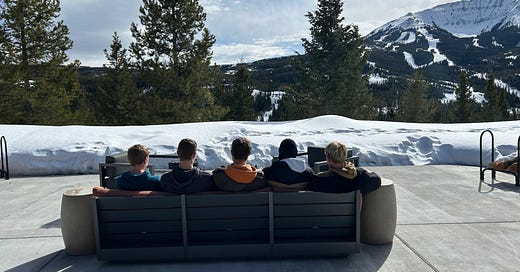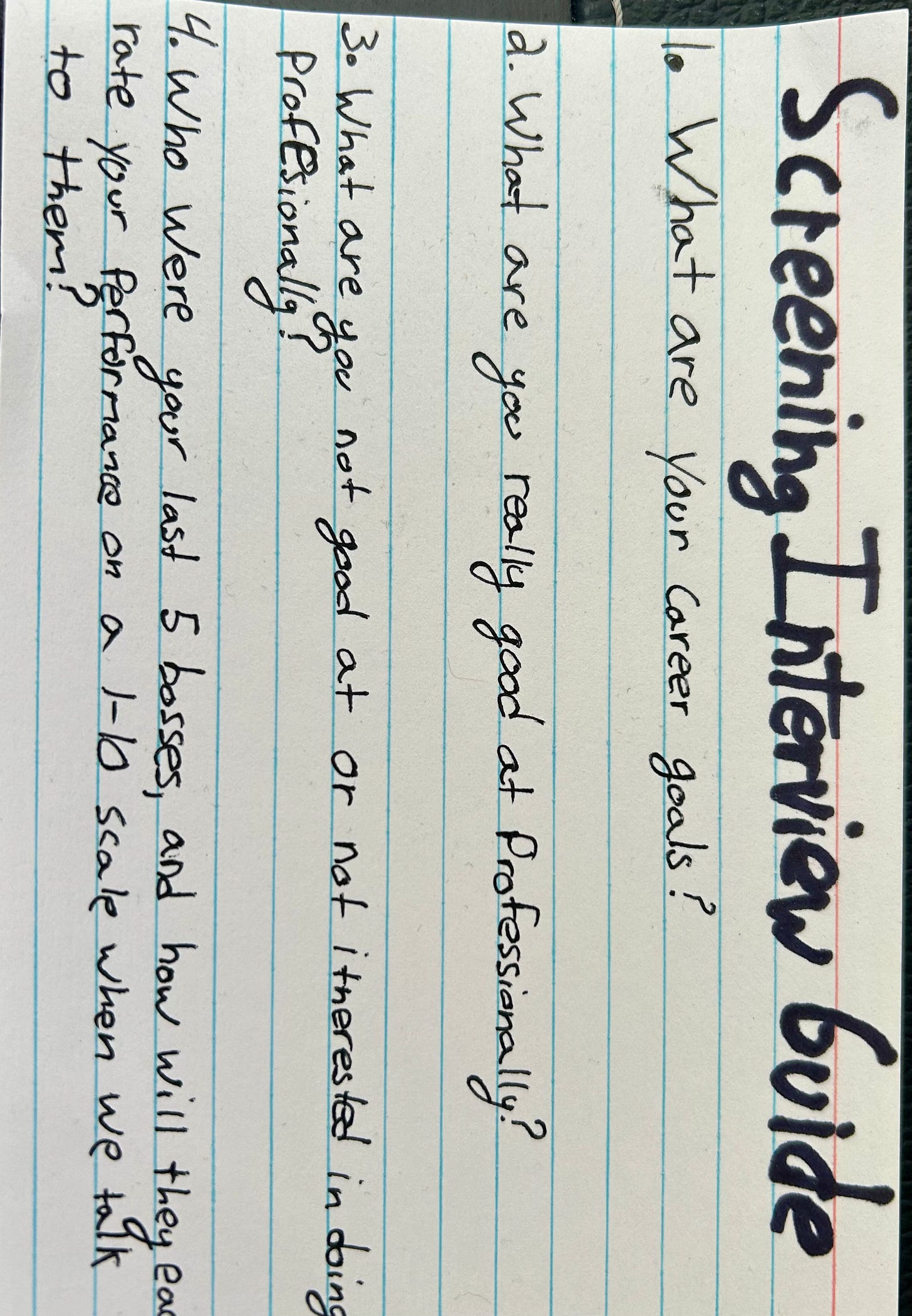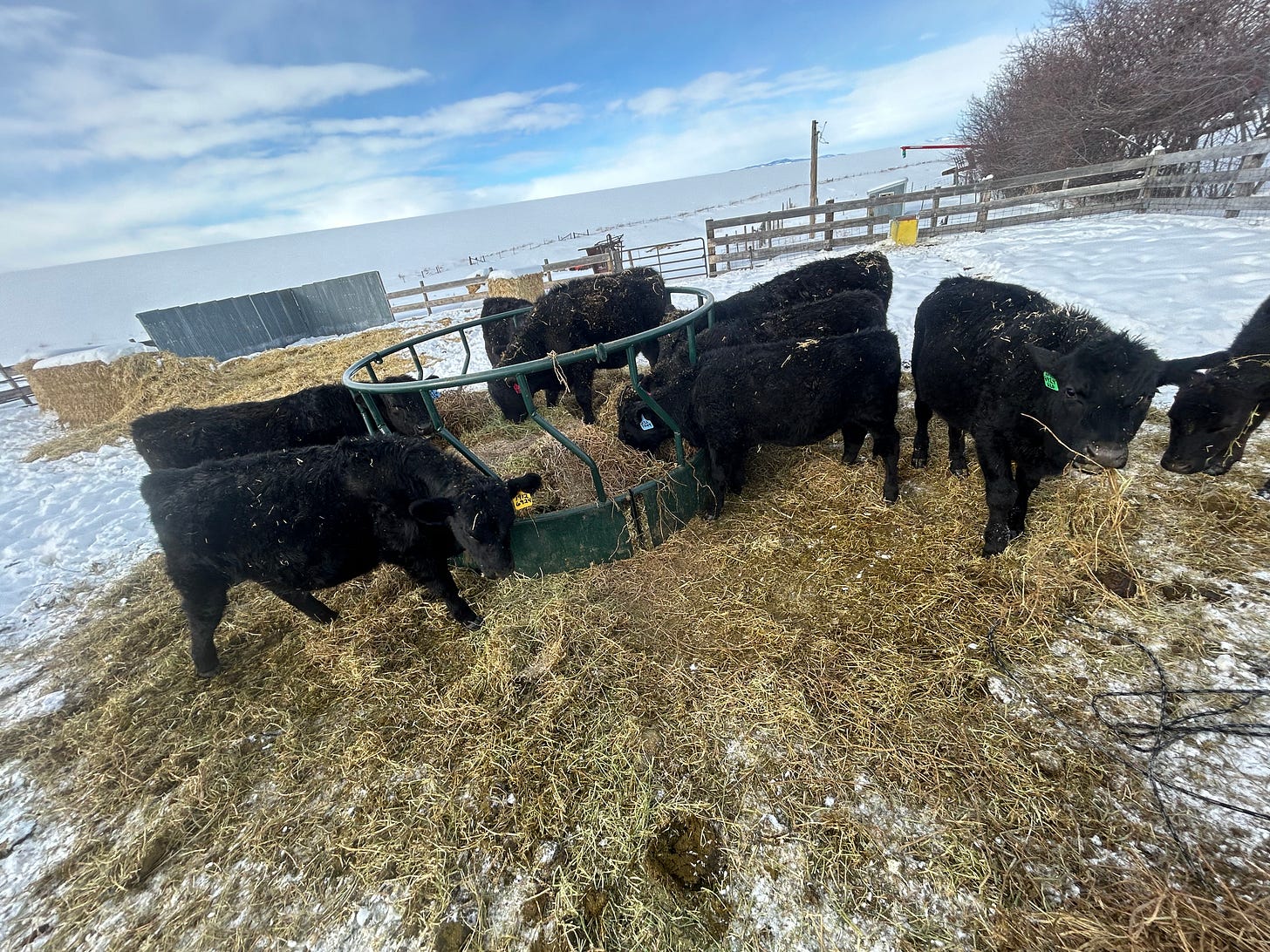What I Read in February and So Much Narnia
Holden Caulfield is an old boy who was kicked out of a college he didn’t care for much to live a meaningless life he ca...
February was a wild month. It had some of the highest highs and the lowest lows, but I’m still here. My heart is still pumping. I am still grateful.
I read a book a day until the 16th of February, and then I had state basketball so I haven’t finished another since then. I still got quite a bit in.
If this is your first review post from me scroll to the very bottom for my rating system before you continue. And right below is a list of everything I read, in case you want to skip to a review that you are interested in.
The Catcher in the Rye
Who
Metamorphosis
Disciplines of a Godly Man
The Maker Versus the Takers
Honor Thy Fathers
Alice’s Adventures in Wonderland
The Lion, The Witch, and The Wardrobe
The Red Eagles
Prince Caspian
What Every Mormon Should Ask
Words of Radiance
The Voyage of the Dawn Treader
Sackett
The Horse and His Boy
The Magician’s Nephew
The Catcher in the Rye — ★★☆☆☆
Written by J. D. Salinger
Holden Caulfield is an old boy who was kicked out of a college he didn’t care for much to live a meaningless life he cared for less. He meanders the streets of New York, depressed. Everything he spends his money on—women, drinks and shows—leaves him emptier than before. At the end of the story he finds meaning in making his little sister happy—the only thing he does in the whole story out of pure love for someone else and not himself.
A world in which you try to find purpose in pleasure will leave you as empty as the shot-glass you can no longer pay to refill.
The author wrote the book as if the protagonist was tell you the story. I didn’t like him, Holden, the way he spoke, or the story…
Who — ★★★★★
Written by Geoff Smart and Randy Street
If you don’t like business, skip this. For anyone else, read this.
Smart and Randy expertly explain how to hire excellent employees. They have a whole process—called the A Method—for hiring people. I have not used it yet, but this spring I will try it out.
*Digression* I own a small lawn and landscaping business that I started two years ago. I was blessed to have it really take off last summer and so this year I will have to hire several employees.
Last year, I only had one guy full-time, but he was just one of my good friends and he is moving on to better things this year. So, to be honest, I am nervous for this spring when I have to hire random people. To help replace this nervousness I am hoping to fill it with competence—that is why I read this book. *Digression ended*
They give multiple, thorough, steps throughout the book—kind of like a formula—one on how to hire the perfect employee for the position. The first step they give you is the phone call interview and how to complete it well. I’ve included a picture of my notes below. If you want the other steps you’ll just have to read it yourself, or be my employee.
Metamorphosis — ★☆☆☆☆
Written by Franz Kafka
I have zero words for this review, other than don’t read it. It’s horrible.
Disciplines of a Godly Man — ★★★★★
Written by R. Kent Hughes
A friend gave this to me last year. It took me a while to get into, but it was really good nonetheless. I think that every Godly man—if you are a man, period, you—should read it.
Hughes writes 20 chapters on different disciplines (Purity, Grace, Love, etc.) and practical ways to walk faithfully in them. He breaks each chapter down into 5-8 things you can do to improve in the certain area.
This book is very counter-cultural because it is about changing yourself and not expecting others to change for you. Don’t read it if you want to continue a pity-party for yourself. Only read it if you want to be something greater.
The Maker Versus the Takers — ★★★☆☆
Written by Jerry Bowyer
Many Christians look down upon the wealthy because, well, because they are wealthy. As if being wealthy is inherently a sin. I think, secretly, it is merely because they themselves are often jealous of those whom God has blessed with wealth. If only it had been them.
If you push back you will be bombarded with stories of camels, needles, roots, and evils. After that they will probably ask you why you are not a missionary, doing the real work of the kingdom, or at least giving all your exuberant wealth to an orphanage somewhere in the Congo.
After all, you are a Christian, aren’t you?
I wonder if they would have asked David that; or Solomon. Perhaps, it would have taken Job, who was blessed financially because of his faithfulness, to convince them that wealth is good.
Jerry Bowyer convincingly proves that the Bible does not forbid gaining wealth and that Jesus does not want a Church of beggars.
The book was very informational.
Honor Thy Fathers — ★★★★☆
Written by Zachary Garris
I might steal this title one day for a fiction book—I absolutely love it.
American culture, even American church culture, has become hyper-sexualized in its theology.
You can be whatever you want, they say.
Tell that to Sodom and Gomorrah.
But it’s not fair that women are not allowed to some things men are, they say.
Tell that to God.
They say it’s hate speech, when actually they hate the truth. They hate it because it rubs them like coarse sandpaper.
Honor Thy Fathers digs through old reformed Christian writings and recovers what those Reformers thought about gender-roles. It was helpful for me to understand how richly our Christian heritage is saturated in anti-feminist theology.
Some people may ask: why make such a big deal about this? Aren’t you just pouring gas unto the flames? The answer to that is: perhaps, but if God makes a big deal about it, I am required to also.
Alice’s Adventures in Wonderland — ★☆☆☆☆
Written by Lewis Carrol
I don’t understand why this is considered a classic, but it does fit Mark Twain’s description of one. Maybe that is why.
A classic is a book everyone wants to have read, but no one wants to read.
The book follows Alice, surprisingly, as she dreams about executions, rabbits, and croquet. There really isn’t a plot to the story, just a bunch of random things that happen throughout it. It gives you the feeling of being schizophrenic without actually having to be schizophrenic.
After I was done reading this book, I hoped desperately that I missed something, anything. So I looked up what it was about and I found that it, apparently, vaguely represents the old victorian political court system.
Yeah, I don’t really care about that. Not glad I read it. You, don’t read it.
It’s after reading books like this that make me question my reading habits.
The Lion, the Witch, and the Wardrobe — ★★★★★
Written by C. S. Lewis
After finishing Wonderland this was like a breath of fresh air when done working the late shift at a smoking tavern. Everything about it was refreshing.
I have never read through the Narnia series. I know, I know, I promise that I have a life, ok? And so, over the next two months I will get to discover a great gold mine that I am extremely late to. I wonder if this is how people feel when they heard about DOGE coin a day a late. Probably not.
If you are also late to the party, let me catch you up. Four children discover a wardrobe to a different world, Narnia, and they have a bunch of adventures. The whole book is a allegory of parts of the Bible. It is fun reading the obvious allusions as well as the hidden.
The writing style is geared towards younger people, but that never made a book less-than-worthy-of-a-read.
The Red Eagles — ★★☆☆☆
Written by David Downing
This is the first book that I have ever read from one of those little community bookshelves. The bookshelf that someone puts in their front yard and you can take one for free, but you are supposed to leave one also. I always romanticized those as a child.
To me, it was like the epitome of the goodness of readers. I knew that man was inherently sinful, I had studied catechisms and memorized verses, but there was something different about these bookshelves. I never saw any one steal from them, I never saw one empty, and they were simply the generosity of readers for all to see and share.
Unfortunately, original sin also took its toll on readers, and my romantic dreams are shattered.
When I have looked inside at the different books, I have never seen a book that I recognized. I understand why, now. Readers, aren’t some pure strain of humanity, they are just like everyone—with slightly higher boredom tolerances. When a reader was doing a pure and holy deed of putting a book unto the community bookshelf they were actually getting rid of a book they didn’t want.
That is why you will never rarely find a good book in one of those. That is why you have never seen a title you recognized. That is why this book only got two stars.
Overall, this book was slow as molasses. Then, suddenly, at parts it was as fast as a raging river. Because of this, it made for a very uncomfortable read. I could never really get into the plot—which had potential to be interesting, it was historical fiction after all.
The moldy cherry to top the melting cake was that it had several obscene parts in it just to desperately get you to keep reading.
Downing was trying to tell the story of Russian spies who were trying to steal Uranium from America in order to build their own atomic bomb. The book included a train hijacking, several gunshots, a few swear words, a boring plot, a ship, Hitler (for one random scene), and a cheesy love story.
Prince Caspian — ★★★★★
Written by C. S. Lewis
Prince Caspian is the second book in the Chronicles of Narnia. The four children find themselves again in Narnia—this time there is no wardrobe. They have been summoned by a magical horn to save the good men and animals from the evil Telmarines.
The children are no longer the kings and queens of Narnia, instead a young boy, Caspian, has taken their place. The young prince is introduced in this book, and is the king in other books also.
I particularly liked this book because it had many subtle allusions to lots of random things and there were many golden phrases and sentences sprinkled around. The plot was not as intriguing as the writing, but the writing was so intriguing that it made the plot intriguing.
What Every Mormon Should Ask — ★★★★☆
Written by Marvin Cowan
This was a very short book on Mormonism and beliefs. Especially, those that are in conflict with Christianity. The information it had was good, but all of the arguments were weak simply because of their brevity.
Nonetheless, it was a nice primer to a larger book I’m reading on the same subject.
Words of Radiance — ★★★★☆
Written by Brandon Sanderson
This is book two of The Stormlight Archive. As I have written on this series earlier I won’t bother you with a lengthy disposition of what I think about it.
Words of Radiance is very good, and concludes a lot of sub-plots started in the first book Way of Kings. This gives the book a very gripping feel the whole time.
Last year I listened to books 1-3 on Audible—they do a fantastic job on this series—and that is as far as I made it. However, for Christmas this year, my brother bought me Words of Radiance and book 5, Wind and Truth. So I knew I had to finish the magnum opus. I restarted with book 1 (on Audible), finished it, and then finished my first real Sanderson book in February.
It was a blast, now I still have to finish another 3000+ pages to complete the series.
Here is a small review I did on my Goodreads account:
This book is incredibly enthralling and therefore: dangerous. Unfortunately, Sanderson is a Mormon and it comes through in his writing with a hierarchy of human and non-human gods. The book was close to getting five stars but there were some needlessly (or so it seemed to me) dark parts.
The Voyage of the Dawn Treader — ★★★★★
Written by the same guy who wrote all of the other Narnia books I read…
Lucy and Edmund with their cousin Eustace Scrubb, nearly drown getting in to Narnia. Instead of a wardrobe, it is a picture frame. One thing that is so wonderful about many of the great writers is their ability to pull the extraordinary out of the ordinary. That quite literally happens in this book, but I won’t spoil it.
Also, one of my favorite quotes is from this book, “There was a boy called Eustace Clarence Scrubb, and he almost deserved it.”
Every time I read that I laugh, and I hope someday to write a sentence half as funny as that. Honestly, even if the book had been poor, I would read it just for this sentence.
Thankfully, the book was not poor. I think, that the grandest part of it—other than the quote—was the conclusion. It was a perfectly golden beam of sunshine piercing the bright mist of the book.
Sackett — ★★★★☆
Written by Louis L’Amour
I was super excited to read this author. My grandparents have a whole set of his books, and my uncle, I’m pretty sure, only reads the Bible and L’Amour. So apparently, it runs in our blood.
L’Amour writes about cowboys, open-plains, and pretty girls. Oh yeah, and cows, lots of cows. This type of story runs along our family heritage. I believe I am the 5th generation to be growing up on the family farm, which is pretty cool.
The writing style was very simple, which was nice. I needed a slight break after finish book two of The Stormlight Archive. The plot was your normal cowboy plot. There’s a hard guy who is really good at making coffee with his sock, and can live off the land, but he’s missing something.
The reader is supposed to pretend like they have no idea what the cowboy is missing, and they are supposed to act surprised and happy when they find out it is a girl.
Oh, and bad guys. I forgot the bad guys.
Sorry for spoiling every cowboy book to exist. Nonetheless, they never get old.
I’m glad I read this. It made me want to buy a horse.
The Horse and His Boy — ★★★★★
Written by surprise! the same guy who wrote the other Narnia books
A talking horse and a boy with daddy issues. I can’t say much more.
The Magician’s Nephew — ★★★★☆
Written by …C. S. Lewis…
The was a prequel to the series. It tells how Narnia came to be and some important glimpses of Lewis’ theology.
I think one of the strongest parts of his writing was pushing the orthodox boundaries. Often, God is put into a box by theologians. They try to hammer a little here, and squeeze a little there, but ultimately God cannot fit into anything. Lewis shows this masterfully by merely laying out possibilities.
What if…
You are not the only sentient being created.
There are different worlds.
I don’t think questions like that are wrong. I think they become wrong when they become our foundation.
Here is the rating system I am using:
★★★★★—Five stars is the best of the best. Definitively a book I want to come back to sometime and that I would recommend anyone put on their reading list.
★★★★☆— Four stars is quite good, probably even good enough for a re-read someday, but for some reason or another it couldn’t quite rank with the greats. (Maybe the author overused adverbs or something.) I would recommend this to most people
★★★☆☆—Three stars is good, but I would not recommend this book to many people, unless it was for a specific reason. I would probably not ever re-read this, unless I was having some existential midlife crisis.
★★☆☆☆—Two stars was not a good book. There is not much more to say. I would not read again or recommend it.
★☆☆☆☆—One star is objectively (by my lofty standards) a horrible book. One that I wished I hadn’t read, and better yet, wished that I had purchased a hard copy so I could burn it.
Almost 3000 words later, after I have rambled and brambled enough, I am done. Thank you so much for reading!
If you have read any of these books like this post or drop a comment, I’ll respond if I’m not reading.









There's an odd sort of beauty and fantasy in Alice's Adventures in Wonderland, but it's the kind of thing you either get or completely miss. I would have given it four stars. Other than that, great post.
Nice pic